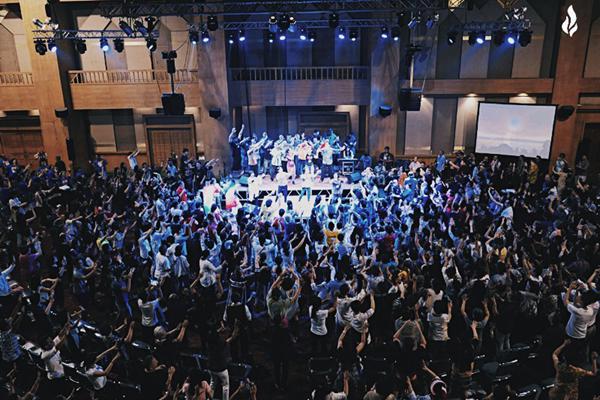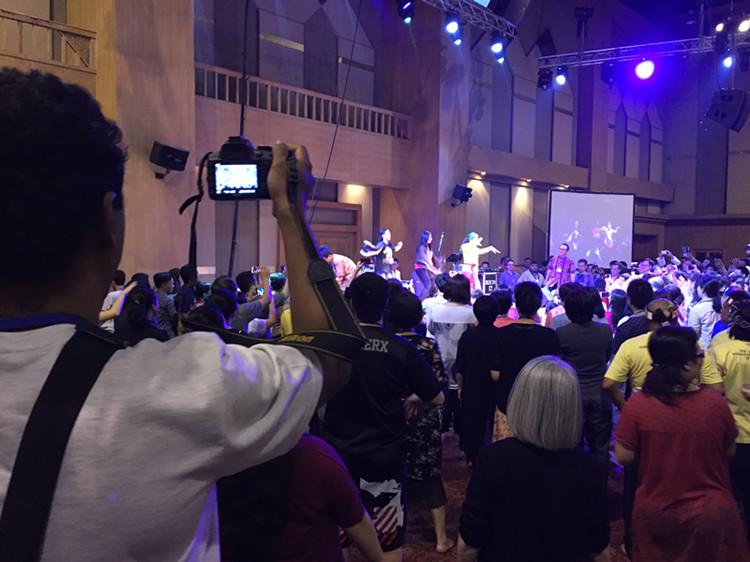The word "covenant" has appeared frequently in the Bible. Its first use was in God's covenant with Noah after He sent the global flood to judge the world. Later, God made a covenant with Abraham (Genesis 17:7). God redeemed people through covenants to restore His relationship with them.
Now, a group of people made a covenant to seek reconciliation between the Han Chinese and other Chinese ethnic minorities. Rev. Ma Jianming, a key member of the "Homecoming" gathering, talked about covenants in the Trial Family Gathering held in Chiangmai on May 4, 2017. He claimed that "Homecoming" is determined to reconcile the broken relationship between the Han people and other ethnic groups for covenants.
Sister Ding, in the front line of serving ethnic minorities for years, shares her insights on their special relationship. She stated that there is a phenomenon among the Chinese ethnic minorities: an ethnic group has no connection with another, and even people who serve the groups are only permitted to nurture in certain regions. For example, a region is divided into several "circles". You can't enter the circle where I'm responsible for; and similarly, I don't go over into that circle which belongs to you. Due to that kind of "circling", the people failed to be united and make a difference for mutual comparison and attack.
"Until six years ago, we began to feel that the Han people should no longer have a dominant heart -- 'We want to help the minorities because they are weak and poor, while we are the eldest.'" The sister holds that the Han should be more humble and have more love. They should perceive: "We need the minorities because they are our family. We should open our hearts to share our love (with them). We ought to believe that we want to give plays with our gifts, talents and abilities on them, who are our stages."
However, where does the heart come from? "It stems from our covenants."
"God's power, which enters their hearts through 'covenants', forms a family connection among the people to replace the former relations of helping and being helped. It is a relation of being with and connecting, marking the beginning of real unity." She said.
Once she and her co-workers visited an ethnic minority family, the locals called them "savages" at the first sight of them. What's worse, mothers in some ethnic groups educate their children with "the Han people", which is regarded as a negative word, because the Han is considered as ferocious and violent people in their eyes.
Because of the covenants, she wanted to mend the Han's relationship with the minorities. She came to realize that the Han were very proud, leaving deep pain to the ethnic groups in the past and even at the present time. Due to some historical reasons, the two sides had no dealings with one another and mutual hatred and guard against each other exists.
"Until six years ago, we started to come together, crying and hugging each other. A call came out of our hearts: you are our flesh and blood and family." She added, "The ethnic groups opened their hearts and confessed: 'We feel very inferior and look down upon ourselves. We also dislike and hate the Han people. We're on the alert to those who help us both at home and abroad.'"
"At that time, we brought a covenant relationship. We declared in our spirits: we are family; all we have is yours and yours belongs to us. We no longer hate each other and argue about sizes and populations of nationalities. We're equal in Christ!"
The "covenant" unleashes the power of authority, breaking curses and overcoming fear. What does "fear" refer to?
She mentioned that they had a gathering four years ago and were informed that the place was heavily guarded when the morning meeting just started. Having encountered similar situations where all the participants left the scene when some people came to check the place, Ding said that nobody left this time. Instead, they asked the newcomers if there was anything wrong with the gathering. Later, they visited a local pavilion for culture and nationalities and over 200 people from different ethnic groups didn't leave because of the relationship of love and covenant. They worshiped God together when given the opportunity.
In the end, Ding confessed that a covenant means walking with our family. "I'll be where you are and we will face what you're confronted with together."
Translated by Karen Luo














